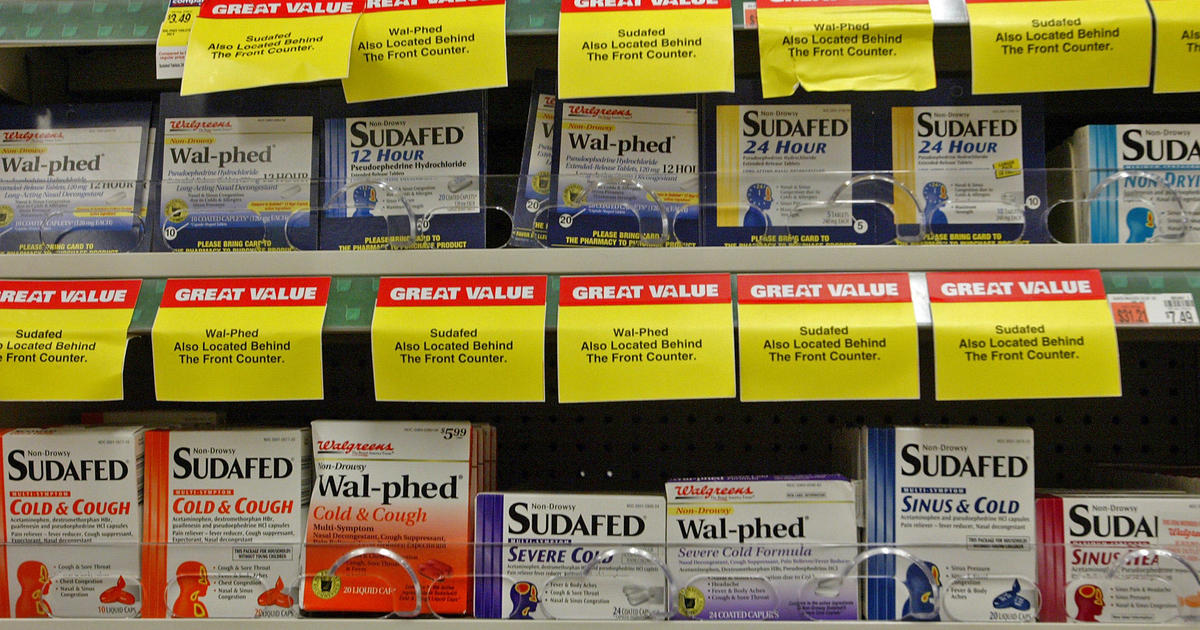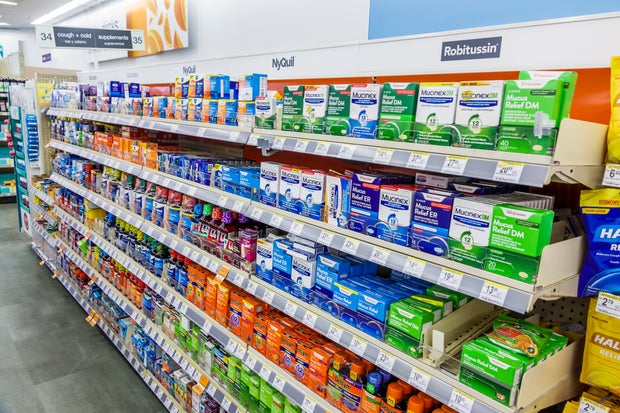Pharmacies could pull common over-the-counter cold medications, including Dayquil, Sudafed and Theraflu, from store shelves after Food and Drug Administration experts determined one of the drugs’ main ingredient doesn’t work.
That could leave consumers scrambling to find alternative treatments for relief from nasal congestion and drugmakers hurrying to devise new drug formulations.
Drugs like Sudafed, made by pharmaceutical company Johnson & Johnson, are part of a roughly $2.2 billion market for oral decongestants. Products with formulations that contain phenylephrine, the drug FDA experts deemed ineffective, make up about four-fifths of that market.
“Unintended consequences”?
The Consumer Healthcare Products Association (CPHA) maintains that phenylephrine is effective and that the FDA’s guidance could have significant “negative unintended consequences.” Pulling drugs like Sudafed from store shelves would make it harder for consumers to treat mild illnesses, according to the industry trade group.
Removing popular over-the-counter medications from the market would force some people “to find time to seek help from a pharmacist, doctor or clinic for an oral decongestant for a minor ailment they could otherwise self-treat,” the group said in a statement before the determination was made.
“Additionally, some consumers indicate they might delay or forgo treatment, which could lead to worsened clinical outcomes such as progression to acute sinusitis and increased demand for doctor and clinic visits over time,” CPHA said.
Jeff Greenberg/Education Images/Universal Images Group via Getty Images
Which drugs contain phenylephrine?
Phenylephrine is found in these and other OTC remedies for stuffy noses:
- Mucinex Sinus-Max
- Robitussin Peak Cold Nighttime Nasal Relief
- Sudafed PE Sinus Congestion
- Theraflu
- Vicks DayQuil and NyQuil Severe Cold & Flu
Phenylephrine is also found in other types of products, such as hemorrhoid creams, but was only deemed ineffective as an ingredient in oral form.
How big is the market for these drugs?
All told, decongestants with phenylephrine account for roughly $1.8 billion in annual sales, according to an FDA report.
Drugmakers also market a separate class of nasal decongestants containing pseudoephedrine (PSE). In 2006, OTC medications containing PSE were moved behind the pharmacy counter because of concerns they could be used to make illicit methamphetamines, which is when formulations with phenylephrine became more popular.
In 2022, stores sold roughly 242 million bottles or packages of OTC cold and allergy oral medications containing phenylephrine, according to the FDA. By comparison, stores that same year sold an estimated 51 million units of PSE, representing $542 million in sales in 2022.
“Sales of products containing PE, which amounted to only a small percentage of the market prior to 2006, have risen and displaced products containing PSE as an OTC decongestant, although sales of PSE, while smaller, remain,” the FDA concluded.
The federal agency also acknowledged the potential “negative” impact that pulling oral PE products from shelves could have on consumers.
















































